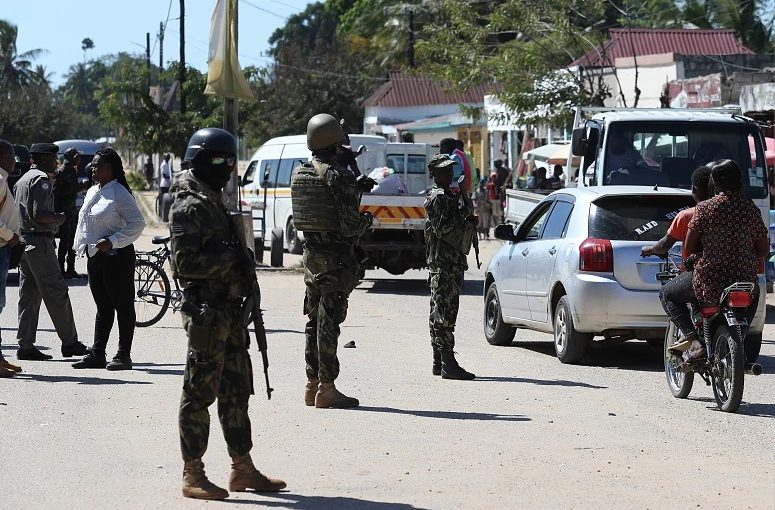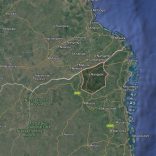Six Mozambicans, two South Africans still in jail as Hawks discover underground drugs labs in ...
Mozambique: Islamic State claims attack on soldiers in Mocímboa da Praia district

FILE - For illustration purposes only. [File photo: Lusa]
The Islamic State claimed an attack this week in Mocímboa da Praia with three explosive devices against the armed forces of Mozambique and the countries of the Southern African Development Community (SADC).
Through its propaganda channels, the terrorist group said today that “three explosive devices were set off” by patrols from the Armed Defence Forces of Mozambique and SAMIM, the SADC mission in Cabo Delgado, between the villages of Mbau, Limala and Mozda.
Lusa was unable to verify on the ground the veracity of this claim, which also does not mention any information about the victims of the attack.
The district of Mocímboa da Praia was the first target of terrorist attacks in Cabo Delgado, northern Mozambique, exactly six years ago. The town of Mocímboa da Praia was even used as rebel headquarters for just over a year until it was reclaimed in August 2021 by the joint action of Mozambican and Rwandan government forces.
The Mozambican Armed Defence Forces announced in August that they had killed several leaders of the terrorist group that has been operating in Cabo Delgado since 2017, including the leader, Mozambican Bonomade Omar.
Speaking to Lusa on Wednesday, researcher João Feijó, from the Non-Governmental Organisation (NGO) Observatório do Meio Rural (OMR), considered that “the insurgency is gradually losing war power and logistical capacity and some leaders” of the rebellion are being killed.
The analyst recognised that the military had managed to expel the armed groups from the areas they occupied in Cabo Delgado and to halt the growth of the insurgency: “In general, all [the military contingents] are relatively satisfied”.
João Feijó pointed out that the rebels had reached an offensive capacity that allowed them to paralyse the natural gas project of the French multinational Total when they attacked the town of Palma in March 2021.
Despite the advances in the military field, Feijó continued, the Mozambican government “is not singing victory” because it knows that the insurgents have “reinvented themselves”, acting in smaller and more mobile groups.
“They continue to operate in secret, in a very discreet way, very low. They continue to have their capabilities that have not yet been eliminated,” he emphasised.
The president of Mozambique, Filipe Nyusi, recognised on Wednesday that the terrorism that has been affecting the province of Cabo Delgado for six years is a “serious new threat to peace” but stressed that it is not a religious conflict.
“A serious new threat to peace in Mozambique is terrorism, a phenomenon that has been affecting our country, specifically the province of Cabo Delgado, since October 2017. The brutality with which the terrorists operate has made it clear that this is not a religious conflict, but a phenomenon driven by factors such as money laundering, drug trafficking, the squandering of mineral resources, among other types of crime,” the president said in Maputo, during the ceremony marking the 31st anniversary of the General Peace Agreement between Renamo and the Mozambican authorities.
Since 2017, the conflict in northern Mozambique has displaced more than a million people, according to the United Nations High Commissioner for Refugees (UNHCR), and caused around 4,000 deaths, according to the ACLED conflict registration project.
“The terrorists are no longer in the villages, we have dismantled their main bases, and they have started to act defensively and in small groups, carrying out small sporadic attacks to loot food from the population and perpetuate terror. With the improvement in order and tranquillity, the population has been returning en masse to their areas of origin, resuming normal life,” said Filipe Nyusi.
The Mozambique Armed Defence Forces have been fighting terrorism in Cabo Delgado province since July 2021, with support from Rwanda and the SADC mission.













Leave a Reply
Be the First to Comment!
You must be logged in to post a comment.
You must be logged in to post a comment.